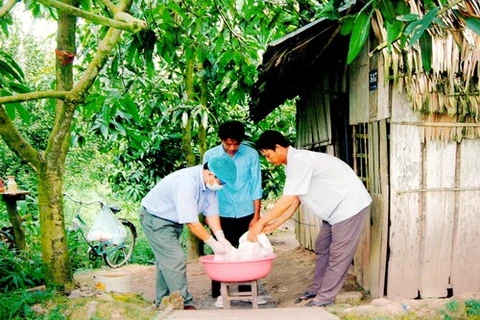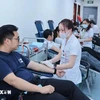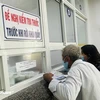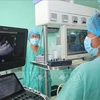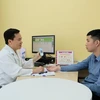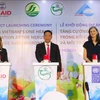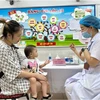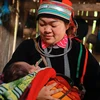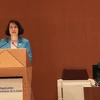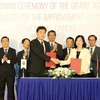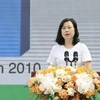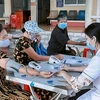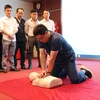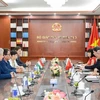 Prime Minister Nguyen Xuan Phuc (right) receives Director-General of the World Health Organisation (WHO) Margaret Chan (Photo: VNA)
Prime Minister Nguyen Xuan Phuc (right) receives Director-General of the World Health Organisation (WHO) Margaret Chan (Photo: VNA) She said that Vietnam should strengthen the training of general doctors, especially family doctors, to enhance the quality of primary health care and reduce health care cost and hospital overload.
The WHO leader said that Vietnam should form an independent agency to evaluate the quality of medicines and new health care technology, while designing strict regulations on the granting of licences to doctors as well as making regular assessment to ensure the quality of their professional operation.
Highlighting the significant role of the private sector in health care, she recommended that Vietnam should issue stringent rules pertaining to management and governance, ensuring the quality and effectiveness of the sector.
Congratulating Vietnam on its inclusive socio-economic attainments, Magaret Chan praised the country’s close coordination with the WHO representative office over the past years, especially in updating and applying advances in the world in the field.
She pledged that WHO will continue advising and supporting Vietnam and expressed her belief that the country will continue making more achievements in the care for people’s health.
PM Nguyen Xuan Phuc spoke highly of the organisation’s efforts for a healthier world, as well as its cooperation with the health sector of Vietnam.
He affirmed that the Vietnamese Government always attaches great importance to the caring and protection of people’s health, while thanking Magaret Chan for effective recommendations and consultations on the operation of Vietnam’s health sector.
As a developing country, Vietnam hopes for WHO’s continuous support in health technology and profession, especially in preventive medicine, contributing to modernizing and completing the Vietnam’s health care system, reducing the ratio of disease infections and fatalities, and increasing people’s longevity.
PM Phuc said that Vietnam is working to develop its pharmaceutical sector to tap the country’s diverse and precious herbal plants.
The Vietnamese Government has also issued many regulations to reduce the use of alcohol and cigarette in public places to protect the public health.
Highly valuing Chan’s recommendation in developing a family doctor system, the Government leader stated that Vietnam will also upgrade the communal health care system to better the quality of health care services for locals in rural areas.-VNA
VNA


